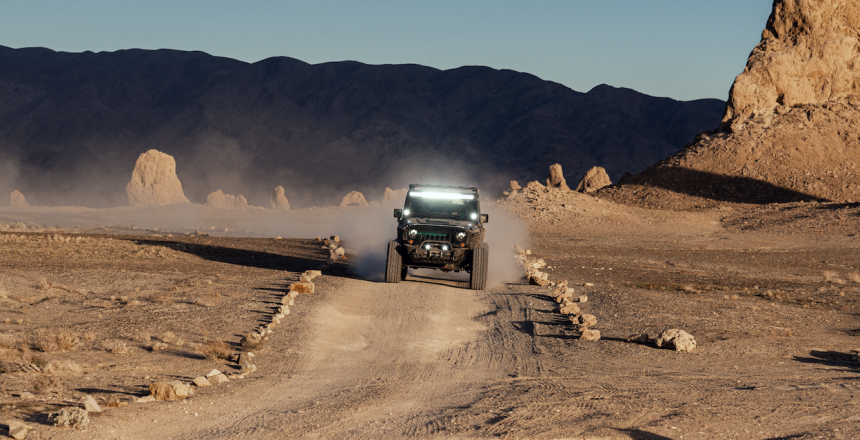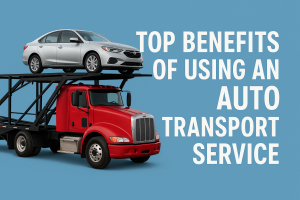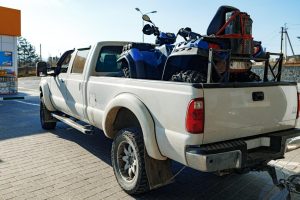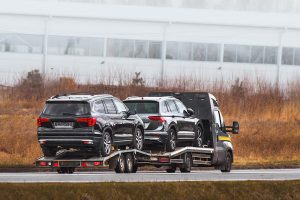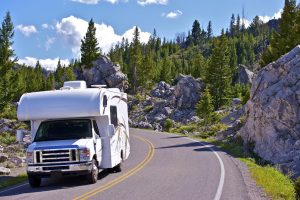Have you ever wondered, “What is Overlanding?” If so, find the answer here.
Overlanding is a way for adventurers to journey across vast distances. Many choose to move through remote and challenging terrains. Unlike traditional road trips, Overlanding focuses on self-reliance and exploration.
It’s about going off the beaten path, seeking new experiences, and forging a deep connection with the natural world. If you are interested in this activity, use the guide here.
Table of Contents
Overlanding vs. Off-Roading
Although overlanding and off-roading share similarities, they are distinct activities. Off-roading primarily targets challenging terrains and obstacles. You also need vehicles designed to handle rough terrains.
Overlanding encompasses a broader scope than off-roading. It involves self-sufficiency, camping, and long-distance travel. Vehicles for Overlanding are also unique.
Overlanding vs. Road-Tripping
Road trips are usually characterized by leisurely travel on established roads. When you go on a road trip, your goal is to reach a predeterminedpre-determined destination.
Overlanding embraces the journey itself. It often involves the following:
- Venturing off-road
- Exploring remote locations
- Camping
Overlanding is about embracing the adventure and the exploration of lesser-known areas.
Overlanding vs. Camping
While camping is a common element in overlanding, the two activities differ in their objectives. Camping is typically a recreational activity focused on the outdoors and enjoying nature.
Overlanding combines camping with the thrill of travel and exploration. It often involves multi-day or extended trips over many landscapes.
What is Overlanding and How to Get Started
For beginners, taking an overland journey can be exciting and daunting. Here are some practical steps and tips to help you get started:
Trip Planning
Successful overlanding trips begin with thorough planning. Some great ways to plan include:
- Research potential destinations
- Study maps
- Identify points of interest
Consider the duration of your trip and determine how many miles you will cover daily. Consider factors such as terrain, weather conditions, and available amenities.
When planning, it’s crucial to balance spontaneity and preparedness. Many people love this activity because it allows flexibility and exploration. However, you still need a general idea of where you are going.
You should also understand the areas to which you’ll be traveling. Gathering this information can help ensure you have a smooth and enjoyable journey.
Route Selection
Choose routes that align with your interests, skill level, and vehicle capabilities. You can find routes by:
- Researching popular overland routes
- Consulting guidebooks and online resources
- Seeking advice from experienced overlanders
Consider factors such as the terrain difficulty, scenic beauty, and points of interest along the route.
Don’t be afraid to venture off the beaten path and explore less-known routes. Overlanding is all about discovering hidden gems and experiencing the road less traveled.
Necessary Preparations
Before setting off on your overlanding adventure, ensure your vehicle is in excellent condition. Regular maintenance checks, including inspecting tires, brakes, fluids, and electrical systems, are crucial.
Pack essential gear and supplies, including the following:
- Camping equipment
- Cooking utensils
- First aid kits
- Sufficient food and water
Consider the specific needs of your journey, too. For example, what type of terrain will you encounter? What is the weather like?
Essential Skills for Overlanding
Embarking on an Overlanding trip requires various skills to navigate the challenging terrains. Here are some essential skills every Overlander should develop:
Navigation and Route Planning
A fundamental skill for overlanding is navigation. Understanding maps, compasses, and GPS systems will help you plot and follow your route accurately.
Research and practice route planning techniques. This includes understanding elevation changes, potential obstacles, and alternative routes. Familiarize yourself with landmarks and geographic features. Doing this can enhance your navigation skills in remote areas.
Techniques
Overlanding often involves driving through challenging terrains. Examples include mud, sand, or rocky surfaces.
Before departing, be sure you know the following:
- Proper throttle control
- Tire pressure adjustment
- Limits of your vehicle
Learn recovery techniques, too. Examples include winching, sand laddering, or using traction aids to overcome obstacles.
Knowledge of Vehicle Maintenance and Repair
Being self-sufficient on the road requires knowledge of basic vehicle maintenance and repair. Carry essential tools and spare parts for your vehicle. Understanding this can minimize the chances of breakdowns.
Communication and Safety
Maintaining communication and prioritizing safety are vital aspects of overlanding. Learn proper communication protocols, including using two-way radios or satellite communication devices.
Develop an understanding of the following:
- Basic first aid techniques
- Wilderness survival skills
- Safety measures
Be prepared for unexpected situations and carry emergency supplies like fire starters, signaling devices, and extra water.
What Is the Best Vehicle For Overlanding?
Choosing the right vehicle is crucial for a successful overlanding adventure. There’s no one-size-fits-all answer.
However, certain features and characteristics make a vehicle right for Overlanding. For example, diesel trucks may be ideal. Here are some considerations when selecting an overland vehicle:
Building Your Overlanding Vehicle
Many overlanders opt to modify and build their vehicles to meet specific requirements. Key considerations include:
- Ground clearance
- Off-road capabilities
- Cargo space
- Reliability
- Fuel efficiency
Remember, the best overlanding vehicle suits your needs and budget. Research different models and consult experienced overlanders to find the best one.
You don’t have to choose a new one. You can look at various buying guides for a durable, tough, and affordable vehicle for your adventures.
What Gear Do You Need to Travel Overland?
Packing the right gear is important for your adventure. There are several types of gear you will need, starting with personal gear:
- Camping equipment
- Cooking utensils
- Water storage and filtration
- Clothing and personal items
It may help to create a list of the items you want to take along. By doing this, you can ensure you don’t forget something important.
Overlanding Cost
Overlanding can vary in cost. Factors that impact the cost include:
- Vehicle modifications
- Fuel consumption
- Accommodations
- Activities
Plan and budget accordingly. Doing so will ensure your trip aligns with your financial resources.
You should consider costs like vehicle maintenance and any camping fees and permits you need. Remember to balance essential gear and minimize unnecessary items. Doing so allows you to optimize your vehicle’s weight and available space.
Why Choose Overlanding?
Overlanding is a unique activity. While it isn’t right for everyone, it can provide an amazing experience.
Here are some of the reasons why people choose Overlanding:
- Adventure and exploration
- Self-sufficiency
- Connection with nature
- Community and camaraderie
While the pros are appealing, it is important to understand overlanding clearly. Some of the potential cons of this activity include the following:
- Challenging terrains
- Potential risks
- Time
- Logistics
Overlanding offers a unique way to experience the world, connect with nature, and create unforgettable memories despite the potential challenges.
Overlanding Destinations
There are countless incredible destinations for Overlanding adventures around the world. Here are a few notable ones:
Route: The Dalton Highway, Alaska, USA
The Dalton Highway stretches through the remote wilderness of northern Alaska. It crosses the Arctic Circle and offers stunning views of rugged mountains and vast tundra landscapes. Notable features include the following:
- Brooks Range
- Arctic National Wildlife Refuge
- Trans-Alaska Pipeline
The Dalton Highway is approximately 414 miles long. It features challenging conditions that even experts will be unsure of. Examples include gravel roads, unpredictable weather, and limited services.
Overlanders can witness unique geological formations. They may also spot wildlife like caribou and moose along the route. It also allows travelers to visit historic sites such as the Yukon River and the Coldfoot Camp.
Route: Canning Stock Route, Western Australia
The Canning Stock Route is one of the world’s most remote and challenging tracks. It spans 1,850 miles through the Australian Outback. It crosses arid deserts, sand dunes, and vast salt flats.
Overlanders can explore unique geological formations. Examples include ancient rock art sites and expansive desert landscapes. They will also encounter diverse wildlife, such as dingoes and emus.
Route: Trans-Siberian Highway, Russia
The Trans-Siberian Highway is an epic journey. It spans approximately 11,000 miles running from Moscow to Vladivostok. As you move along this route, you will see many landscapes like taiga forests and rolling steppes.
The route is exceptionally long and presents challenges. It includes the following:
- Long stretches of remote and sparsely populated areas
- Diverse road conditions
- Extreme weather
Overlanders can witness the stunning diversity of Russian landscapes on this route. It is a route that is perfect for seasoned Outlanders.
If you plan to travel to another country, making arrangements for your vehicle is smart. You can use a shipping service to get it to your destination.
Overlanding Community and Resources
The overlanding community is valuable for knowledge-sharing, support, and inspiration. Here are a few resources to connect with the overlanding community:
Resource 1: Overland Journal
Overland Journal is a comprehensive magazine and online resource for Overlanding. It features all types of helpful information.
You can read in-depth articles and trip reports. You can also find expert advice from seasoned overlanders.
Resource 2: Expedition Portal
Expedition Portal is an online community and information hub for overlanders. It offers many resources. You can also access a forum to ask questions and get answers.
Resource 3: iOverlander
iOverlander is a crowd-sourced database and app specifically designed for Overlanders. It provides a comprehensive directory of campsites, gas stations, and more.
Safety Tips for Overlanding Adventures
While overlanding is an exhilarating activity, you must prioritize safety. Here are some safety tips to consider:
- Discuss the challenges you may face
- Be prepared for an emergency
- Protect yourself from harm
Follow the local regulations and guidelines. Be sure to use common sense when encountering unfamiliar environments or situations.
Ready to Hit the Road? Overlanding Awaits!
Congratulations! You now understand the answer to “what is Overlanding?” With this knowledge and resources, you can embark on an overlanding adventure.
So, pack your gear, prepare your vehicle, and embark on an epic adventure. Overlanding awaits, and the open road beckons.
If you are ready to explore the great beyond, we can help. Contact us to learn more.
